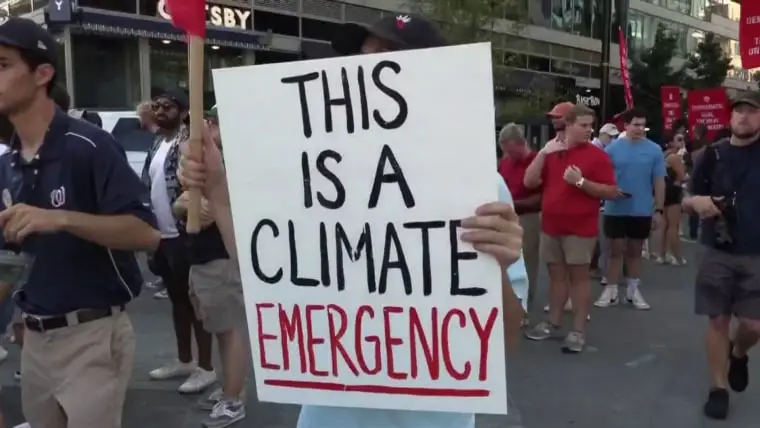
California bill would force large companies to disclose greenhouse gas emissions
A first-of-its-kind bill that would require large companies operating in California to publicly disclose their greenhouse gas emissions passed the state Senate this week despite strong opposition from some business interests.
The proposed legislation, SB 253, passed Tuesday and is on its way to Gov. Gavin Newsom's desk.
It garnered letters of support from tech companies such as Apple, Adobe and Microsoft, as well as environmental groups such as the Sierra Club, which praised it for holding polluting corporations accountable.
“The bill is an important tool for shareholders, for investors deciding where to invest their money and for both public and private interests to understand the climate impact of corporations,” said Ben Cushing, director of the Sierra Club’s Fossil-Free Finance campaign. “The fact that this bill passed in California, which is the largest economy in the U.S., is particularly significant.”
But it also faced strong opposition from business interests, including the California Chamber of Commerce, the California Hospital Association and the Southern California Gas Co.
California state Sen. Scott Wiener, one of the senators who helped introduce SB 253, said the tactics used by opponents of the bill were shocking.
Biden urged to declare climate change a national emergency
Aug. 23, 202302:00“In my nearly 13 years as a legislator, I’ve never faced such a dishonest opposition campaign,” he said. “Some opponents spread bald-faced lies about easily verifiable facts.”
In an email to NBC News, the Chamber of Commerce said the bill was “a costly mandate that will negatively impact businesses of all sizes in California and will not directly reduce emissions.”
Wiener said that SB 253 would only affect businesses with annual revenues exceeding $1 billion and that implementing climate disclosures should cost under $300,000 per year.
The opposition to the California bill echoes resistance to rule changes proposed last year by the U.S. Securities and Exchange Commission that would require companies to disclose their greenhouse gas emissions to the federal agency.
Business interests and conservative lawmakers have railed against the proposed SEC rule, with Republicans in both the U.S. House and Senate attempting and failing to pass bills that would restrict the SEC from passing the rule changes.
Cushing said that the range of the bill is important. Like the proposed SEC rules, SB 253 covers not just scope 1 and 2 emissions, which come directly from company-owned sources such as factories or vehicles or purchased resources like electricity, but also scope 3 emissions, which include indirect sources of emissions that occur when consumers buy or use a company’s goods and services.







